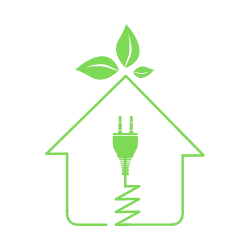
When advocating for clean energy it is important to recognize the impact climate change has on underserved and disadvantaged communities due to the systemic injustice they face. Advocating for clean energy is an opportunity to fight for climate justice to bring clean energy not only to Naperville but also to the many who do not have access to resources to fight for clean energy. As an affluent community that has the means to decrease our reliance on coal, Naperville has an opportunity to lead an equitable transition to not only help the health of our planet, but of all people. Please share ideas and take action to better communicate this and amplify the voices of BIPOC, who historically have had no voice. Climate change and adverse health impacts from dirty energy impact us all, and we can all work to bring justice and a solution to all. Black voices, Indigenous voices, woman voices, queer voices, immigrant voices, voices of the young and the old, POC voices, international voices, and your voice are all needed.
As stated by UN Secretary-General António Guterres, “climate change is happening now and to all of us. No country or community is immune. And, as is always the case, the poor and vulnerable are the first to suffer the worst hit”1 .
Generating the power purchased by Naperville to sell to its customers emits more than two billion pounds of CO2 greenhouse gasses2 every year plus mercury and other toxins. These emissions accelerate climate change and harm people and the environment. However, Naperville does not feel the harm caused by the coal plants because they are hundreds of miles away from the Naperville community. The Prairie State and Trimble County coal plants, which Naperville purchases power from, collectively emit more than 40 billion pounds of CO2 every year3 – the equivalent of burning 2 billion gallons of gas4. Prairie State coal plant is located in Marissa, Illinois in Washington County. Trimble Count coal plant is Bedford, Kentucky in Trimble County.
“Environmental justice, for me, embraces the principle that all communities and all people are entitled to equal protection of environmental laws and regulation, housing laws, education, land use, employment, and health” Dr. Robert Bullard, “Father” of Environmental Justice
As stated by our friends at the Downstate Caucus, “Muni/coop customers are not a homogenous population. An inclusive and just transition should not be constrained by utility boundaries. All Black, Brown and Indigenous people must have equal access to renewable energy, energy autonomy, and the clean energy economy”. Clean energy will benefit the health of communities. Clean energy will give people access to affordable energy through programs like Community Solar5 and Solar for All6.
[1] https://www.un.org/sustainabledevelopment/blog/2019/05/climate-justice/
[2]1,335,884 MWh x 1800 lbs CO2 (73% coal and 17% gas) = 2,404,591,200 lbs of CO2, equivalent to the amount emitted every year by 237,109 cars (https://www.epa.gov/greenvehicles/greenhouse-gas-emissions-typical-passenger-vehicle)
[3]https://www.eia.gov/electricity/data/emissions/ (Prairie State is the largest power plant emitter of CO2 in IL)
[4]https://www.fueleconomy.gov/feg/contentIncludes/co2_inc.htm
[5] https://www.citizensutilityboard.org/community-solar-illinois/
[6]https://www.illinoissfa.com/